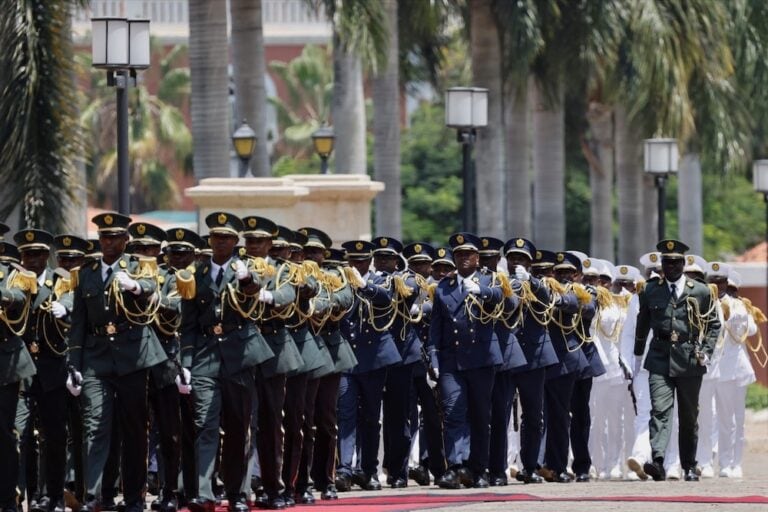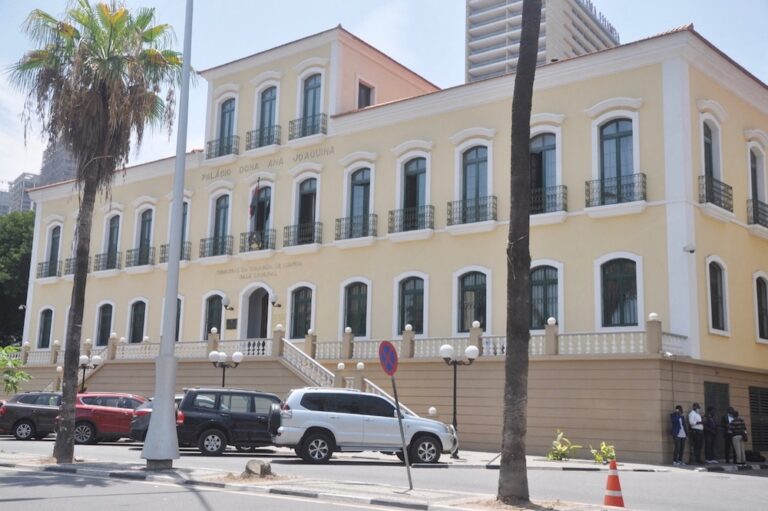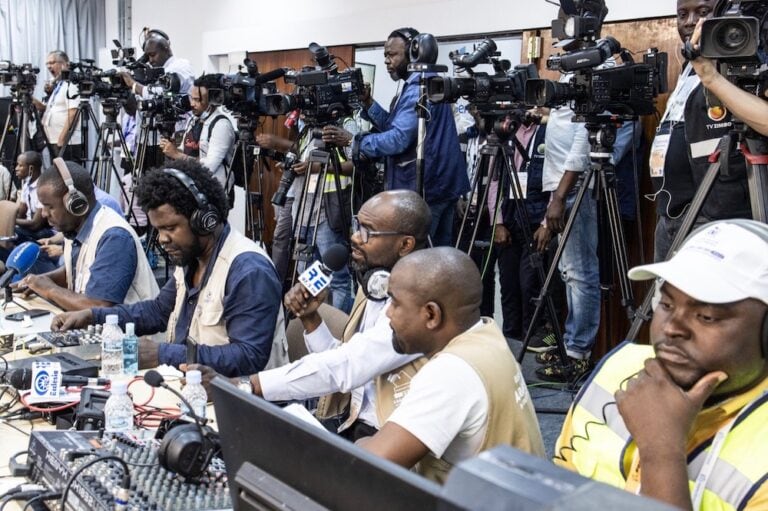(MISA/IFEX) – Angolan journalist Isidoro Natalício, who is based in Ndalatando, capital city of Kwanza-Norte, may face an orchestrated demonstration of war veterans in front of his house within the next twenty-four hours. At the same time, the governor of the province, Manuel Pedro Pacavira, has issued a veiled threat against the journalist, saying he […]
(MISA/IFEX) – Angolan journalist Isidoro Natalício, who is based in Ndalatando, capital city of Kwanza-Norte, may face an orchestrated demonstration of war veterans in front of his house within the next twenty-four hours. At the same time, the governor of the province, Manuel Pedro Pacavira, has issued a veiled threat against the journalist, saying he does know what will happen to the journalist in the next twenty-four hours.
On 3 November 2000, Natalício reported on the Catholic radio station Radio Ecclesia about a public rally at which Governor Pacavira was booed by an angry mob of war veterans, ex-political prisoners and maimed soldiers for failing to keep his word on paying them their pensions, in arrears since January. To better illustrate the story, Natalício recorded the sounds of the veterans booing the governor live, as well as a passing interview with a veteran complaining about the way the local authorities had neglected their demands.
In a meeting with the governor on 7 November, the journalist learned – from the governor himself – that the war veterans were preparing a demonstration against him in front of his house, to protest his news story “incriminating them against the governor.”
The governor told Natalício that he was doing “something” to prevent reprisals against the journalist given that “the maimed soldiers (war veterans) were very upset” with him. The governor added though, “I don’t know what is going to happen to you in the next twenty-four hours.”
A Catholic priest from the local parish, Bernard Ducheme, went with the journalist to the meeting with the governor. The governor himself had a provincial representative of the social communication office, David Bubas, and his press staff, Paulo Zadi and Isabel Olívio, present as witnesses.
During the meeting, the governor blamed Radio Ecclesia for “spearheading” a campaign against his image and dignity and for reporting only on the bad things happening in the province, to the detriment of any achievement. As for Natalício’s role in what he saw as a campaign against him, he said that the journalist was giving very little coverage to religious events, in favour of critical issues.
In a separate but related development, early on 7 November, Natalício received a subpoena from the provincial bureau of criminal investigation (DPIC) for allegedly defaming and slandering the provincial governor in his 3 November report on Radio Ecclesia. The complaint was filed by the governor’s press office, but during his meeting with the journalist, the governor denied any knowledge of the complaint.
Natalício was summoned to the office of DPIC on 7 November, where he was questioned. However, he refused to answer any questions unless he was allowed access to a lawyer. As a result, he was given a day to report to the office of the provincial attorney, with his lawyer, for further questioning.
To date, Natalício has an appeal pending in the provincial court against an eviction warrant issued by the court in June. The provincial court ordered Natalício to vacate his house on the accusation that he had converted his home into an office for Voice of America, Radio Ecclesia and the Portuguese news agency, LUSA (see IFEX alerts of 19 and 16 June 2000). The charge was denied by the journalist, whose only equipment at home is a typewriter and a telephone which he uses to string for the referred media outlets. He does not have anyone working with him.
On 8 November, Natalício will have to present himself in the provincial court to learn about the ruling on his home.
(With thanks to Rafael Marques for the information contained in this alert.)


